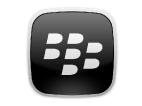Google's fact checking tool can now be used to verify the authenticity of an image. The feature is currently in beta and requires interested users to join a waitlist to try it out.
Fact check RSS
Twitter has expanded Birdwatch to everyone in the United States. The feature allows users to essentially fact-check individual tweets. Users who want to contribute must earn the right.
Facebook has announced that it will be combating misinformation in the form of photos and videos. It has developed machine learning to find content to be reviewed by its fact-checking partners.
YouTube has announced plans at South by Southwest to tackle conspiracy theories on its site with fact-based information. It comes at a time when the site is battling divisive content.
The social networking site will be removing the 'disputed' tag it was previously showing on stories that were believed to be false. Instead, the company will tag such articles with more credible news.
Bing will automatically show you if a story is "true" or "false" right on the search page for sites that support schema.org ClaimReview markup. This will work for sites such as Snopes, Politico etc.
Google has expanded its Fact Check tool to its search feature, while also rolling it out worldwide. It will now tell users if certain news on a search result is likely to be true or not.
Facebook is attempting to crack down on misinformation with a pop-up alerting users when they're about to share 'disputed' content. The site stated last year it would begin flagging fake news stories.
BlackBerry has accused its rivals of spreading "fear, uncertainty and doubt" about the company, and says the media have "crowded the airwaves" with "sensationalized reports" about its performance.




















_small.jpg)


